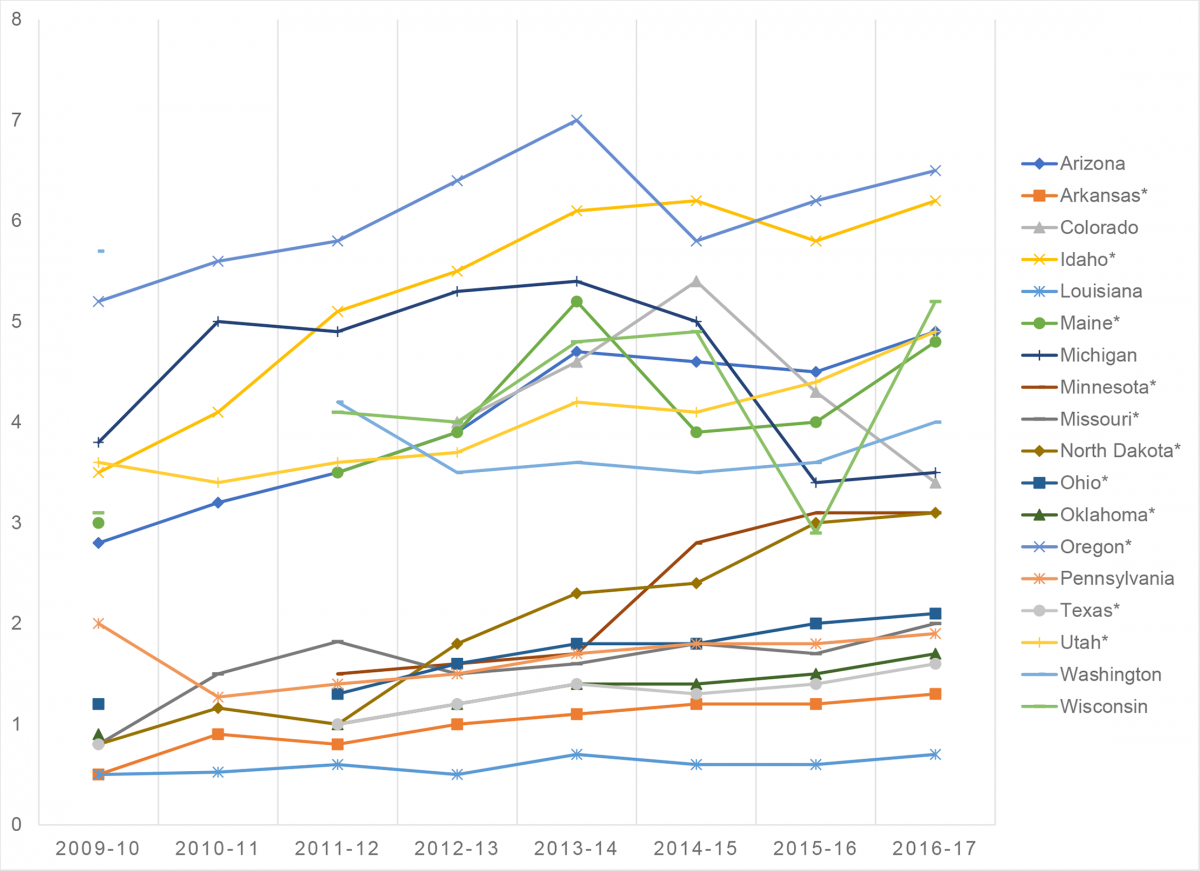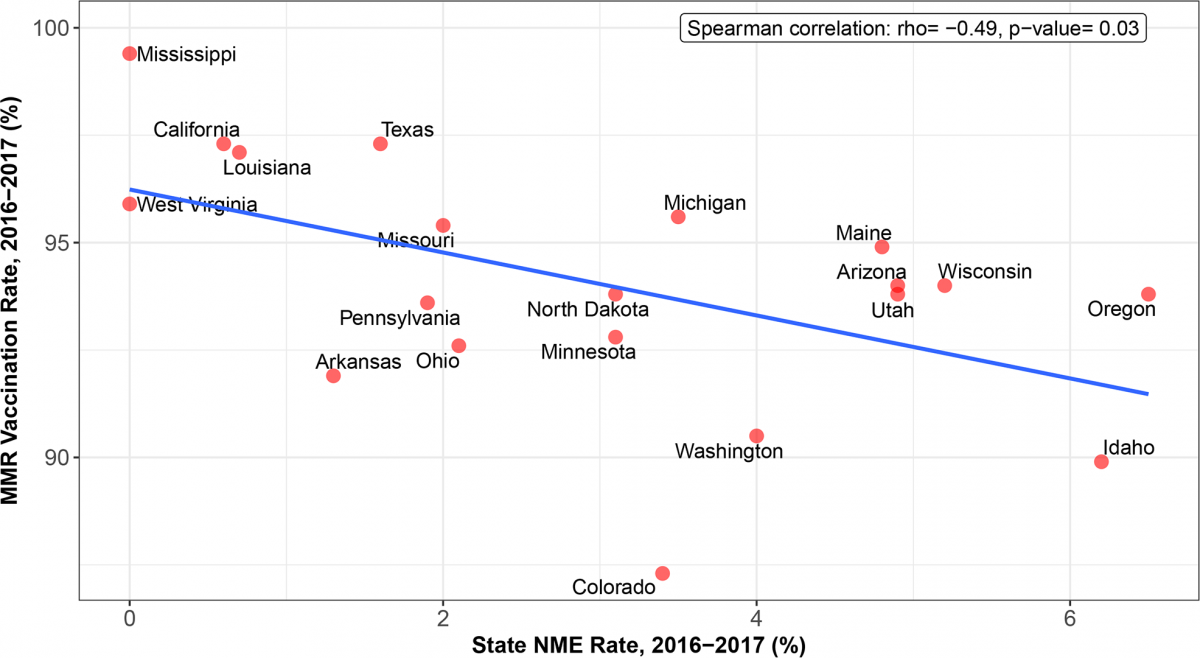The anti-vax movement continues to rise in several U.S. states, a study has revealed. Nonmedical exemptions from childhood vaccinations on the grounds of "philosophical belief" has risen since 2009 in 12 of the 18 states that allow the practise.
Scientists linked rates of non-medical exemptions to declines in actual vaccinations in a paper published Tuesday in PLoS ONE. The team marked out several urban hotspots at particular risk of measles outbreaks.

Health officials declared measles "eliminated" in the U.S. back in 2000. But the disease continues to rear its ugly head. Prominent "anti-vax" campaigners continue to make headlines as local outbreaks continue to pop up.
The team of researchers gathered data on how many children were given nonmedical exemptions (NMEs) for vaccinations normally required for entry into school. Such exemptions can be granted on the basis of religious or philosophical belief, and researchers probed the latter. Eighteen states, the team reported, allow NMEs on the grounds of philosophy.
Read more: Anti-Vaxxers accidentally fund a study showing no link between autism and vaccines
Twelve of these states—Arkansas, Arizona, Idaho, Maine, Missouri, Minnesota, North Dakota, Ohio, Oklahoma, Oregon, Texas and Utah—saw a general upward trend in NMEs from 2009 to 2017. Although some have seen a plateau over the last three years, many others have seen rates continue to rise. "It is important to note that NMEs continue to rise in at least one-third of the 18 states, with no signs of slowing in those rates. In addition, in those states with plateauing levels, the potential for outbreaks still exists," the authors noted.
Climbing NME rates saw corresponding drops in actual vaccinations for measles, mumps and rubella (MMR).

The scientists identified a number of "hotspot" counties with very high NME rates. Idaho in particular had a large number of hotspots, including Camas, which had an NME rate of nearly 27 percent.
Of particular concern were several counties including metropolitan hotspots like Seattle, Spokane and Portland, OR, where 400-plus kindergartners had NMEs. In Maricopa, Arizona—home to Phoenix—nearly 3,000 children had NMEs between 2015 and 2016. These densely-populated urban areas a offer particularly effective home for an outbreak. "Our findings indicate that new foci of antivaccine activities are being established in major metropolitan areas, rendering select cities vulnerable for vaccination-preventable diseases," the researchers noted.

Measles is a serious disease that can lead to dangerous complications, particularly in young children and babies. It can lead to pneumonia, brain damage and even death. One shot of the MMR vaccine is 93 percent effective against measles, the CDC reported. Two shots are 97 percent effective.
According to the CDC, 63 people this year so far have contracted measles in the U.S. This may seem small, but cases can rise rapidly in communities without adequate vaccination coverage. A child left unvaccinated against measles, mumps and rubella for non-medical reasons is 35 times more likely to develop measles than a child that has been vaccinated, the researchers wrote.
Non-vaccination, researchers on the current PLoS ONE study added, was a problem beyond individual cases. "[Non-medical exemptions] weaken herd immunity that protects the population at large, particularly children who are unable to get vaccinated for medical reasons."
In 2015, scientists specifically linked a multistate outbreak of measles at the Disneyland Resort in Anaheim, California, to substandard vaccination compliance in a research letter published in JAMA Pediatrics.
Read more: Anti-vaxxers score a legislative victory in California
The anti-vax movement owes its existence in large part to a discredited scientific paper published in 1998 that linked the MMR vaccine to autism. The now struck-off British physician Andrew Wakefield published the fraudulent results, which were subsequently rejected by the medical community.
In the U.S., Wakefield continues to rile against vaccination. In 2016 he directed the 2016 film Vaxxed: From Cover-Up to Catastrophe, which alleged the Centers for Disease Control and Prevention (CDC) had buried links between the MMR vaccination and autism. The movie was withdrawn from the Tribeca Film Festival after a wave of criticism, Entertainment Weekly reported at the time.
Uncommon Knowledge
Newsweek is committed to challenging conventional wisdom and finding connections in the search for common ground.
Newsweek is committed to challenging conventional wisdom and finding connections in the search for common ground.
About the writer
Katherine Hignett is a reporter based in London. She currently covers current affairs, health and science. Prior to joining Newsweek ... Read more
To read how Newsweek uses AI as a newsroom tool, Click here.








